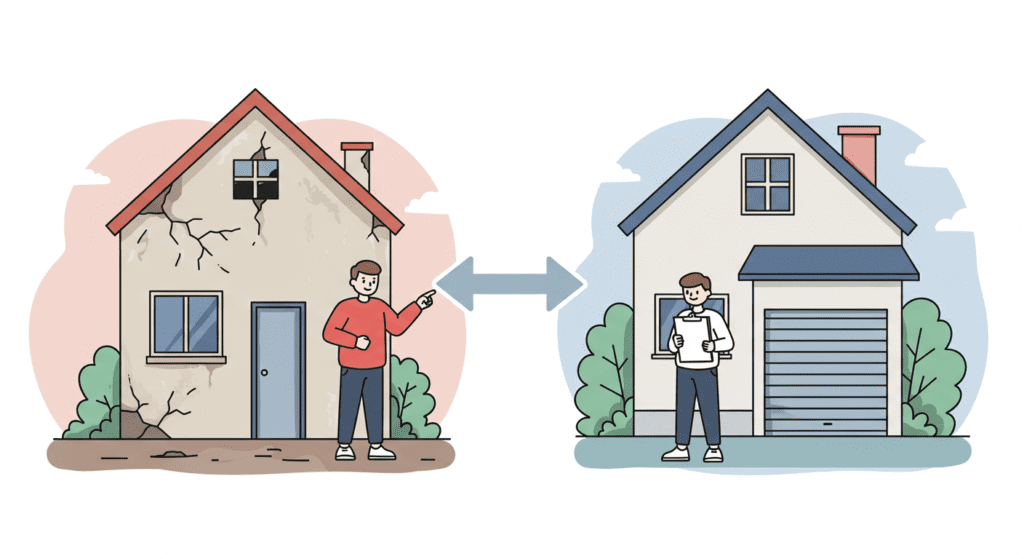No one enters the real estate wholesaling business expecting it to be easy. Sellers question your offers, hesitate to commit, or pull away last minute. If that sounds familiar, don’t worry—you’re not doing it wrong. You’re just experiencing what every wholesaler faces.
The truth is, objections from real estate sellers are part of the game. But if you know how to respond, those objections become stepping stones instead of roadblocks.
This guide breaks down the five most common objections sellers throw your way and shows you how to answer with confidence. Plus, we’ll show how REI Podio CRMs helps you track every seller’s concern, follow up like a pro, and never lose another deal due to poor communication.

Why Real Estate Sellers Object
Understanding seller behavior is essential in the real estate wholesaling business. Most objections don’t come from a place of rudeness—they come from uncertainty. Sellers have concerns. They have fears. Sometimes they just don’t know how the wholesaling process works.
Some worry you’re just another lowball investor. Others believe their home is worth more than it is. A few are emotionally tied to their property, unsure if selling is the right move. Your job? Address those issues honestly.
REI Podio CRMs let you keep notes on every conversation. You know what matters to each seller, so when it’s time to reconnect, you’re ready with real answers—not guesses.
Objection One: “Your Offer Is Too Low”
This is the most common objection wholesalers hear. And usually, it comes down to expectations. Maybe the seller based their price on a neighbor’s recent sale. Maybe they saw a high number on a website. Either way, they think your offer doesn’t match the value.
Instead of getting defensive, explain your process. Show them your numbers. Break down your cost for repairs, holding, and risk. Give them real comps from similar homes.
REI Podio CRMs stores all this data for you. Comps, repair notes, contractor estimates—it’s all in one place when you need to justify your offer.
You could also ask, “What price were you expecting?” That opens a conversation instead of a standoff. From there, you can find middle ground or learn their real motivation.
When a seller feels you’re being straight with them, they’ll usually listen. Sometimes, they’ll even come back to your offer after shopping around.
Objection Two: “I Need to Think About It”
This one’s tricky. It can mean anything from “I’m not interested” to “I’m overwhelmed.” The worst thing you can do is take it at face value and walk away.
Instead, stay calm and curious. Ask, “Is there anything you’re uncertain about?” If they bring up the price, revisit it. If they don’t understand your process, explain it clearly.
Then, reinforce your value. Mention the benefits they get—fast cash, no agents, no commissions, no repairs. Sellers need reminders of why they’re even considering you.
And always give a time limit. Say, “I can hold this offer until Thursday.” That small detail gives urgency without pressure.
In REI Podio CRMs, you can schedule a follow-up two days later. Add notes, set an alert, and come back right on time.
Objection Three: “I’m Not Ready to Sell Yet”
This one is usually tied to emotions. Maybe the house belonged to their parents. Maybe they raised a family there. Selling can feel like giving up a part of their past.
You don’t need to rush them. Ask simple, supportive questions like, “What’s keeping you from moving forward right now?” That one question often reveals everything.
Once you know the reason, suggest a plan. If they’re not ready to move, connect them with moving help. If they need time, respect it. But don’t lose touch.
Use Podio for Real Estate to set reminders to check back in 30 or 60 days. Create a follow-up task labeled “Emotional seller – not ready yet.” That way, you stay relevant without pushing.
In this business, being remembered matters. Sometimes your offer is forgotten because your timing was off. Don’t let that happen.re conversations.

Objection Four: “I Got a Better Offer”
This might sound like a deal killer, but it’s not. Sellers use this line to test you. They might want to know if you’ll match or beat the offer. Or maybe the other buyer isn’t as real as they claim.
Ask them to explain the other offer. “Is it cash or financing?” “Does it come with contingencies?” Many times, sellers get excited about a bigger number but ignore the strings attached.
Then, explain why your offer stands out. You can close fast. You’re not waiting on a lender. You don’t need inspections. Your certainty matters more than a phantom offer that could disappear.
REI Podio CRMs helps you note these objections and track which sellers are shopping around. Later, if that “better offer” falls through, you’ll be first in line to reconnect.

2Objection Five: “I’d Rather List with a Realtor”
This one stings. It feels like rejection. But it’s another chance to educate.
Realtors offer exposure, but they also bring fees, delays, and sometimes unrealistic timelines. Explain the cost of waiting. While they may get a higher price, they’ll also pay commissions, do repairs, and possibly wait months.
Then, highlight the simplicity of your process. Show them that your offer, even if it’s a bit lower, puts cash in their pocket faster.
Bring up a past deal where a seller listed, waited months, and came back to you because nothing sold. Real-life examples build confidence.
Inside REI Podio CRMs, track these sellers under a “Realtor Path” tag. Follow up every 30 days. Some will be frustrated and ready to sell directly. When they are, you’ll be the one they remember.

Follow-Up Wins the Deal
Handling objections doesn’t mean closing on the first call. It means staying in touch without becoming a pest. You’re here to help them when they’re ready. That’s what makes follow-up key.
Here’s a proven timeline you can use:
On Day 1, send a thank-you message after speaking.
After a week, check in with a quick update or question.
A month later, remind them you’re still interested.
Two months later, ask if anything’s changed.
You can schedule all of this in REI Podio CRMs. Automate messages or get alerts so nothing falls through the cracks. This system means you’ll always follow through, even with 50 leads in your pipeline.

Why This All Matters for the Real Estate Wholesaling Business
The real estate wholesaling business isn’t just about offers. It’s about conversations. Objections are part of those conversations. When you respond the right way, you don’t lose deals—you gain trust.
You show sellers you’re a professional. You prove you care. That’s what makes people want to work with you.
With tools like REI Podio CRMs, you don’t just guess your way through these calls. You track what works, remember what matters, and stay consistent.
Objections don’t have to slow you down. They can build your brand if you handle them well.

Key Takeaways
Real estate sellers object for many reasons, but every objection is a chance to build trust.
Address concerns with simple facts, not pressure.
Use REI Podio CRMs to organize every lead and never miss a follow-up.
Stay consistent. Stay professional. The deals will follow.
You’re not here to push. You’re here to solve problems. And the more prepared you are, the more sellers will choose you over the competition.
If you want a better way to manage objections and grow your real estate wholesaling business, try REI Podio CRMs today.










